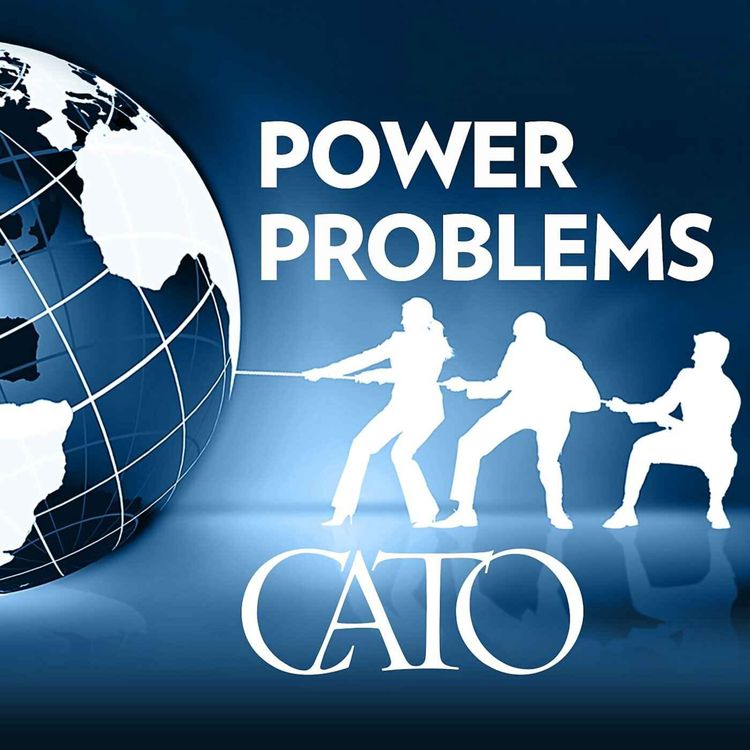Share

Power Problems
Ukraine, NATO, and the End of the War
Ep. 183
•
Emma Ashford, senior fellow at the Stimson Center, discusses recent escalations in the Ukraine war, the costs to the United States and European partners of supporting Kyiv, the effect of the conflict on Russia’s economy, the problems with Biden’s strategy, why it’s unlikely Ukraine can achieve total victory, the timing of ceasefire diplomacy and peace talks, how early negotiations proved the significance of Ukraine’s neutrality as a core issue of the war, the wayward mission of NATO and the future of the alliance, and why it’s not in US interests to bring Ukraine into NATO, among other issues.
Show Notes
- Emma Ashford, “Testing Assumptions About the War in Ukraine,” Stimson Center Policy Memo, May 23, 2024
- Emma Ashford, Joshua Shifrinson, Stephen Wertheim, “What Does America Want in Ukraine,” Foreign Policy, May 8, 2024
More episodes
View all episodes

211. Embracing Multipolarity
42:08||Ep. 211Emma Ashford, Senior Fellow at the Stimson Center, discusses her book First Among Equals: U.S. Foreign Policy in a Multipolar World, forthcoming from Yale University Press.
210. Modeling War on the Korean Peninsula
39:53||Ep. 210Dartmouth College's Daryl Press and George Washington University's Nicholas Anderson discuss their modeling of an outbreak of war on the Korean Peninsula, assess the balance of power between the North and South, and explore the implications for the US military alliance with South Korea.Show NotesNicolas Anderson, Daryl Press, “Lost Seoul: Assessing Pyongyang’s Other Deterrent,” Texas National Security Review Vol 8 Issue 3, Summer 2025.
209. A Regime Change War in Iran?
42:34||Ep. 209Rosemary Kelanic, Director of the Middle East Program at Defense Priorities, discusses the Israel-Iran war, U.S. involvement, whether regime change is the objective, and the risks of escalation. Show NotesRosemary Kelanic, “A U.S. War With Iran Would Be a Catastrophe ,” New York Times, June 14, 2025.
208. Do Madman Tactics Work?
45:27||Ep. 208Samuel Seitz, a fellow at MIT’s Security Studies Program, explores so-called “madman behavior” in international politics and whether it’s effective in gaining leverage in international confrontations. He explains why problems of signaling, credibility, and reassurance tend to make madman tactics ineffective and he discusses examples from the Cold War to Trump’s first and second administrations. Show NotesSamuel Seitz, Caitlin Talmadge, “The Predictable Hazards of Unpredictability: Why Madman Behavior Doesn’t Work,” The Washington Quarterly 43:3, 2020.
207. Gen Z, Internationalism, & Change in Foreign Policy
38:57||Ep. 207Christopher Chivvis and Lauren Morganbesser of the Carnegie Endowment for International Peace discuss the foreign policy attitudes of Gen Z, the relationship between public opinion and foreign policy, and the increasing salience of transnational issues, among other topics. Show NotesChristopher Chilis and Lauren Morganbesser, “What Gen Z Thinks about U.S. Foreign Policy,” Carnegie Endowment for International Peace, April 17, 2025
206. Can Trump Make a Deal with Iran?
47:11||Ep. 206Trita Parsi, Executive Vice President of the Quincy Institute for Responsible Statecraft, talks about the Trump administration’s diplomacy with Iran. He discusses the failures of the first Trump administration’s and the Biden administration’s approaches to Iran, why Trump’s second time around could lead to a new nuclear deal, Iran’s changing regional geopolitical position, and why a more peaceful US-Iran relationship serves US interests in the Middle East.Show NotesTrita Parsi, “Why Trump’s Iran Diplomacy May Work,” Time, April 11, 2025.
205. UFOs, Aliens, & National Security
49:18||Ep. 205Alexander Wendt, political scientist at Ohio State University, discusses his forthcoming book The Last Humans: UFOs & National Security, on the political and national security consequences of discovering that Unidentified Aerial Phenomena (UAPs) are piloted by intelligent extra-terrestrial life. He argues that the ontological shock from this discovery risks triggering a civilizational “auto-immune reaction” of widespread disorder that could undermine the international state system and suggests possible policies and pathways to responsibly prepare for this scenario.Show NotesAlexander Wendt, The Last Humans: UFOs and National Security (forthcoming from Oxford University Press)Alexander Wendt, Raymond Duvall, “Sovereignty and the UFO,” Political Theory, 36(4), 607-633.
204. Why America Needs to Change Its Nuclear Weapons Posture
47:14||Ep. 204The Stimson Center’s Christopher Preble and Geoff Wilson argue that nuclear weapons modernization programs are wasteful boondoggles that undermine deterrence and stability while serving as a give-away to parochial interests. They discuss a “deterrence first” posture on nuclear weapons, perverse incentives in the bureaucracy, profligate waste and inefficiency, the risks of nuclear escalation, the consequences of eroding nuclear deterrence, and threat inflation on China, among other issues. Show NotesGeoff Wilson, Christopher Preble, Lucas Ruiz, “Gambling on Armageddon: How US Nuclear Policies are Undercutting Deterrence and Lowering the Threshold for Nuclear War,” Stimson Center Report, February 19, 2025.
203. India’s Quest for Major Power Status
49:20||Ep. 203T.V. Paul, professor of international relations at McGill University, talks about his recent book Unfinished Quest: India’s Search for Major Power Status from Nehru to Modi. Paul discusses India’s international status, the push for permanent membership on the UN Security Council, India’s military capabilities and “reactive grand strategy,” India’s complex relations with Russia and China, how some of India’s domestic problems hamper its international ambitions, and strategic management of the U.S.-Indian relationship, among other topics. Show NotesT.V. Paul, Unfinished Quest: India’s Search for Major Power Status from Nehru to Modi, (Oxford University Press, 2024).